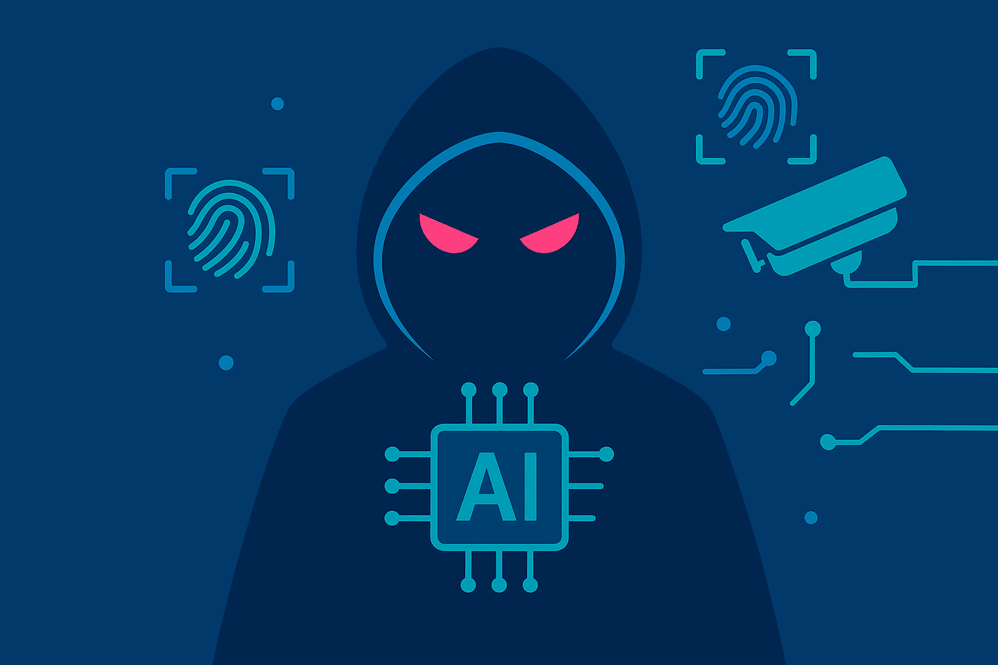Balancing Innovation, Security and Civil Liberties…
Artificial Intelligence (AI) is one of the most transformative technologies of our time, holding great potential to improve the quality of life for many people. From healthcare to transportation, education to agriculture, AI can revolutionise how we live, work and interact with the world. However, like any powerful tool, its misuse by governments can lead to severe consequences for human rights, privacy and personal freedoms.
As AI technology advances, people in every country must remain vigilant against its potential abuse by overzealous governments. While AI can and should be used to enhance security and safety, it must never come at the cost of fundamental human rights or individual sovereignty. The balance between leveraging AI for societal good and preventing its use as a tool for surveillance can be delicate but the stakes are extraordinarily high.

AI As a Force for Good
There is no doubt AI has incredible potential to help improve our lives. AI-driven innovations have already demonstrated their value across numerous sectors, such as:
Healthcare
AI can analyse vast datasets to predict health issues, assist in early diagnosis and personalise treatment plans. For example, machine learning models can detect patterns in medical imaging that even trained professionals might miss.
Transportation
Autonomous vehicles and AI-optimised traffic systems promise to reduce accidents, ease congestion and lower carbon emissions.
Education
AI can provide personalised learning experiences, helping students of varying abilities to thrive by tailoring content to their needs.
Public Safety
Predictive policing, when used ethically, can help allocate resources more effectively, potentially preventing crime before it occurs.
These examples illustrate how AI can be a force for good when deployed responsibly. Governments have a role to play in ensuring these advancements pass scrutiny and rigour, ensuring that AI is used to enhance the well-being of their citizens. However, the same technologies that enable these benefits can also be weaponised for surveillance and control if not carefully regulated.

The Dark Side of AI
AI’s capacity to process and analyse massive amounts of data at unprecedented speeds makes it a powerful tool for companies, consumers and governments. While this can be harnessed legitimately to prevent terrorism or manage public infrastructure, it also opens the door to abuse. In particular, AI can be used to snoop on civilians, restrict their movements and erode their liberties, often under the guise of national security or public order. This type of overreach must always be called out and stopped in every instance.
Citizen Control
One of the most glaring examples of AI misuse is found in China, where the government has deployed advanced surveillance systems to monitor its citizens on an unprecedented scale. The Chinese Communist Party’s “Social Credit System” uses AI to track individuals’ behaviour through a network of cameras, online activity monitoring and data aggregation. Citizens are assigned scores based on their actions, and everything from jaywalking to criticising the government is included. Those with low scores can face severe consequences, such as being denied access to public services, travel restrictions, or even social ostracism. Facial recognition technology, powered by AI, plays a central role in this system, enabling the government to identify and track individuals in real time across vast urban landscapes.
Social Media Whitewashing
This “Big Brother” approach is not limited to China. Other authoritarian regimes have also embraced AI to suppress dissent and control populations. For instance, AI-powered tools have been used to monitor social media platforms for signs of political opposition, enabling governments to silence critics before they can organise. In some cases, predictive algorithms have been employed to identify potential “troublemakers” based on their online behaviour, associations, or even their physical movements.
The Threat to Freedom in Democratic Societies
While such draconian practices are often associated with authoritarian states, democratic governments are not immune to the temptation of using AI for questionable purposes. In Europe and America, where personal freedoms and privacy are deeply ingrained in societal values, the misuse of AI by governments could have devastating consequences for liberty. The infrastructure for mass surveillance already exists in many democratic nations, as seen by the proliferation of CCTV cameras, the collection of metadata by intelligence agencies and the growing use of facial recognition in public spaces. There is a high probability AI is already being used in ways that are unconstitutional, illegal and contravene basic human rights and data sovereignty. If left unchecked, these surveillance networks will quickly rival those of authoritarian regimes.
The Threat is Real
For example, imagine a scenario where AI is used to monitor individuals’ online activity, flagging those who express dissenting opinions or participate in protests. While this might be justified as a means of preventing violence or extremism, it could easily be abused to suppress legitimate political discourse, a regular occurrence during the pandemic. Similarly, AI-driven movement tracking, through GPS data, public transport systems, or facial recognition, could be used to restrict the mobility of individuals deemed “undesirable” by the state, for no other reason than their personal opinions or political views. Such measures could start with seemingly reasonable goals, such as tracking criminals or monitoring public health risks, but over time they could erode the very freedoms that define our democratic societies.
The Importance of Human Rights and Data Sovereignty
At the heart of this issue lies the need to protect human rights and data sovereignty. Governments must recognise that while AI can enhance security, it must never be used to infringe upon the fundamental rights of individuals. Privacy, freedom of expression and freedom of movement are non-negotiable principles that must be preserved, even in the face of evolving threats.
Data sovereignty is the idea that individuals must have control over their own data. AI systems rely on vast amounts of personal data to function effectively, and this data must be handled with the utmost care. Governments must not be allowed to exploit AI as a means of amassing unchecked power over their citizens’ personal information. Instead, robust legal frameworks must be established to ensure that data is collected and used transparently, with clear accountability mechanisms in place.
Security vs. Freedom
The challenge lies in finding a balance between leveraging AI for legitimate security purposes and preventing government overreach. Sensible measures, such as using AI to detect cyber threats or prevent terrorist attacks, are undoubtedly valuable. However, these measures must be accompanied by strict oversight and transparency to ensure they are not abused.
Here are some of the key areas that need consideration to avoid personal freedoms being threatened by AI:
- Legislation
Governments must enact clear laws that define the boundaries of AI use, specifying what is permissible and what is not. These laws must prioritise the protection of human rights and include mechanisms for independent oversight.
- Transparency
Citizens have a right to know how AI is being used by their governments and companies that provide goods and services. Both public and private accountability are essential to prevent the secretive expansion of surveillance programs.
- International Cooperation
AI misuse is already a global issue, and international standards must be developed to ensure that all nations adhere to ethical principles. Europe and America must lead by example, demonstrating that it is possible to harness AI’s benefits without sacrificing freedom.
- Citizen Empowerment
Individuals must be educated about their rights and the risks of AI misuse. Public awareness campaigns and digital literacy programs can help citizens advocate for their own privacy and freedoms.
A Call for Vigilance
As we stand on the brink of an AI-driven future, it is incumbent upon everyone, including citizens, governments and technologists alike, to ensure that this powerful tech is used responsibly. The examples of AI misuse serve as a stark warning because unchecked surveillance and control can erode the very foundations of a free society and supposedly democratic nations. In Europe, America and beyond, we must remain vigilant and demand that our governments prioritise and respect human rights and data sovereignty, even as they seek to enhance security. We must resist the temptation to sacrifice liberty for the illusion of safety.
Human Rights Are a Non-Negotiable Priority
The road ahead is fraught with challenges, but if we are to sustain freedom and liberty into the future, we must rise to meet them. AI can be a force for good, but only if we ensure it is wielded with care, accountability and an unwavering commitment to the principles that define us as free societies. The last two decades have shown political accountability in supposedly advanced democratic states is at best extremely week, or some would argue almost non-existent. We will need to do much better if AI is not to be wielded by Western governments against their own citizens. Some things must always remain sacrosanct and working together we must ensure governments understand that our human rights are a non-negotiable priority.
You may want to read: “Is Your Car Snooping on You?”






